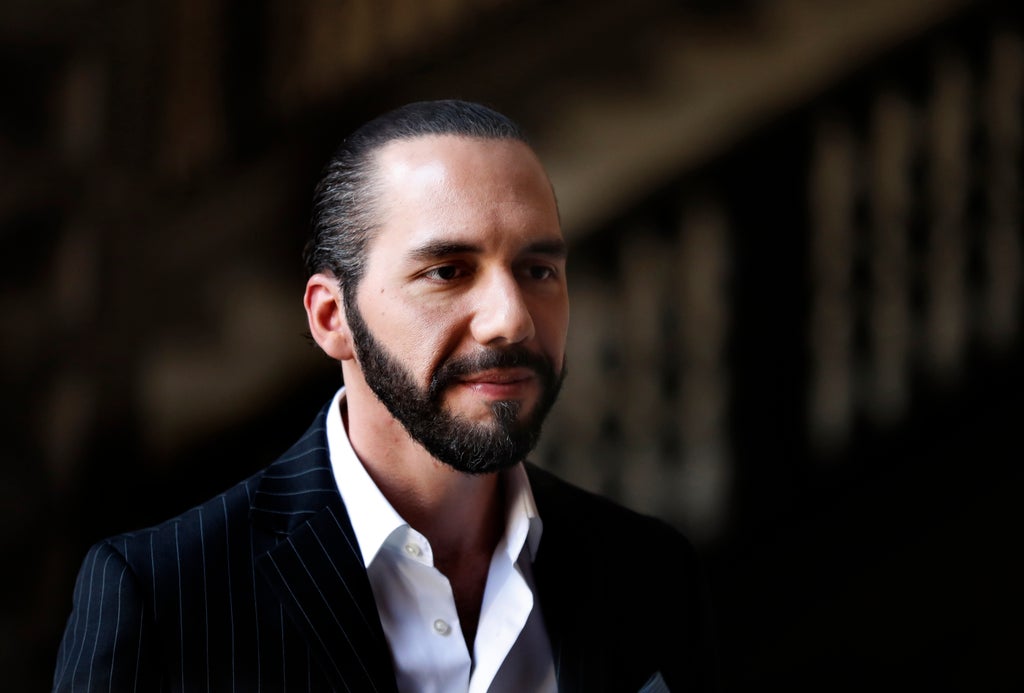
President Nayib Bukele asked El Salvador’s congress Sunday to extend an anti-gang emergency decree for another 30 days.
Bukele has used the emergency powers to round up about 16,000 suspected gang members, following a spate of murders in March.
Rights groups have criticized the measures, saying arrests are often arbitrary, based on a person’s appearance or where they live.
The original 30-day state of emergency approved in late March restricts the right to gather, to be informed of rights and have access to a lawyer. It extends to 15 days the time that someone can be held without charges.
It came after a spate of killings in late March, when gangs were blamed for 62 killings in a single weekend, a level of violence the country of 6.5 million has not seen in years.
Bukele has also established a raft of other measures.
Among other things, they lengthened sentences, reduced the age of criminal responsibility to 12.
El Salvador’s congress has authorized prison sentences of 10 to 15 years for news media that reproduce or disseminate messages from the gangs, alarming press freedom groups.
Gang members held at Salvadoran prisons have been put on reduced food rations, denied mattresses and frog-marched around.
Rights groups have expressed concerns that innocent people are being caught up in sweeps targeting the notorious violent street gangs.
Gangs control swaths of territory through brutality and fear. They’ve driven thousands to emigrate to save their own lives or the lives of their children who are forcibly recruited. Their power is strongest in El Salvador’s poorest neighborhoods where the state has long been absent. They are a drain on the economy, extorting money from even the lowest earners and forcing businesses that can’t or won’t pay to close.







